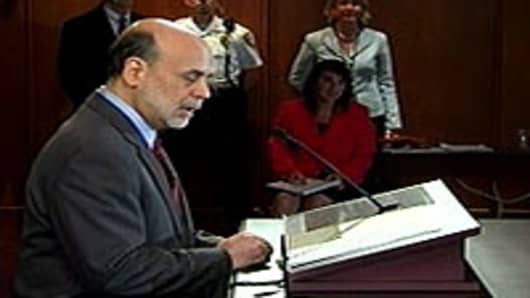The economic data in the US is heading south and investors are beginning to question whether the Federal Reserve will extend its asset-buying program beyond the end of the month.
One economist though believes the forces against such a move make the chances of Ben Bernanke and the Federal Open Market Committee (FOMC) pulling the trigger on the third round of asset buying - also known under the acronym QE3 - slim.
“It seems Mr Bernanke would face major difficulties marshalling a FOMC consensus in favor of further monetary ease, even if he had a mind to do so,” said Stephen Lewis, the chief economist at Monument Securities in a research note.
Consensus on the FOMC is unlikely to be the biggest obstacle to QE3 according to Lewis.
“The balance of opinion on the FOMC is not the chief obstacle to the Fed’s prolonging its asset purchases.
The US political situation is different now from when Mr Bernanke initiated QE2 on 3 November last year” “The House of Representatives was ready then to allow the Fed a free hand but, following mid-term elections, there is now a majority hostile to a policy that looks too much like debasing the currency;” Lewis added.
Bernanke will also be mindful of a run on the dollar when considering QE3 according to Lewis.
“He might reasonably fear a more determined flight from US assets if the Fed were to decide on creating more liquidity, especially as US fiscal policy is also now a cause for international concern,” he said.
Most important of all, China has objected to the Fed’s QE. The US-China talks on 10 May reached strategic agreement.
The price for Beijing’s allowing more rapid yuan appreciation is likely to have been the USA’s abandonment of QE as a policy instrument,” said Lewis.



